William Shakespeare, the Bard of Avon, is often considered one of the greatest writers in the English language. However, his works are known for their unique vocabulary and expressions that can be challenging for modern readers to understand. Let’s dive into 50 of the most common Shakespearean English terms used by Shakespeare, complete with definitions, phonetic transcriptions, and examples.
This guide aims to demystify some of Shakespeare’s most common terms, bringing the Bard’s language closer to the readers of today. By exploring these terms, you’ll gain a richer understanding of his plays and sonnets, making them more enjoyable and accessible.
Table of Contents
- 50 Most Common Shakespearean Terms: Definitions and Examples
- #1. Alas (əˈlæs) 😔
- #2. Art (ɑːrt) 🎨
- #3. Hark (hɑːrk) 👂
- #4. Foe (foʊ) 🥊
- #5. Thou (ðaʊ) 🫵
- #6. Aught (ɔːt) 🔢
- #7. Verily (ˈvɛrɪli) ✅
- #8. Thine (ðaɪn) 🫂
- #9. Aye (aɪ) 👍
- #10. Hath (hæθ) ✋
- #11. Doth (dʌθ) 💬
- #12. Methinks (mɪˈθɪŋks) 🤔
- #13. Forsooth (fɔːrˈsuːθ) 🙌
- #14. Whence (wɛns) ❓
- #15. Hence (hɛns) 🚶♂️
- #16. Naught (nɔːt) 🚫
- #17. Thither (ˈðɪðər) 🏃♂️
- #18. Zounds (zaʊndz) 😮
- #19. Lest (lɛst) ⚠️
- #20. Woe (woʊ) 😢
- #21. Anon (əˈnɒn) 🕰️
- #22. Beseech (bɪˈsiːtʃ) 🙏
- #23. Perchance (pərˈtʃæns) 💭
- #24. Sire (saɪər) 🕴️
- #25. Ere (ɛr) 🌄
- #26. Afoot (əˈfʊt) 🚶
- #27. Tarry (ˈtæri) ⏳
- #28. Troth (trɔθ) 💍
- #29. Knave (neɪv) 😈
- #30. Marry (ˈmæri) 💑
- #31. Yonder (ˈjɒndər) 🌅
- #32. Avaunt (əˈvɔːnt) 🚫
- #33. Plague (pleɪg) 🦠
- #34. Wilt (wɪlt) 🌿
- #35. Gallant (ˈɡælənt) 🎖️
- #36. Enmity (ˈenmɪti) ⚔️
- #37. Abhor (əbˈhɔːr) 🤮
- #38. Bedazzled (bɪˈdæzəld) ✨
- #39. Quoth (kwoʊθ) 🗣️
- #40. Jest (dʒɛst) 🤡
- #41. Fray (freɪ) ⚔️
- #42. Beguile (bɪˈɡaɪl) 🎩
- #43. Fain (feɪn) 😊
- #44. Quaff (kwɒf) 🍷
- #45. Ho (hoʊ) 🎶
- #46. Vexed (vɛkst) 😤
- #47. Surfeit (ˈsɜːrfɪt) 🤢
- #48. Besmirch (bɪˈsmɜːrtʃ) 💔
- #49. Banish (ˈbænɪʃ) 🚪
- #50. Gory (ˈɡɔːri) 🩸
- Table of Common Shakespearean English Terms
- Conclusion
50 Most Common Shakespearean Terms: Definitions and Examples
Shakespeare’s language is not just old English—it is a treasure trove of vivid imagery, clever wordplay, and expressive phrases that have shaped the English language. From terms of love and conflict to those of nature and magic, Shakespeare’s words paint pictures and tell stories that resonate even today.
Whether you’re a student, educator, or just a lover of literature, this guide will enhance your appreciation of Shakespeare’s works. 📚✨
#1. Alas (əˈlæs) 😔
Definition: An expression of sorrow or regret.
Examples:
- “Alas, I knew him well,” cried Hamlet as he held Yorick’s skull.
- “Alas, our love is forbidden,” Juliet lamented.
#2. Art (ɑːrt) 🎨
Definition: An old-fashioned way of saying “are.”
Examples:
- Thou art more lovely and more temperate,” Shakespeare wrote in Sonnet 18.
- “Wherefore art thou Romeo?” Juliet asked, questioning Romeo’s identity.
#3. Hark (hɑːrk) 👂
Definition: A command to listen attentively.
Examples:
- “Hark! The herald angels sing,” could be an instruction from a Shakespearean play to pay attention.
- “Hark! The distant sound of the bell marks the hour,” said the watchman.
#4. Foe (foʊ) 🥊
Definition: An enemy or opponent.
Examples:
- “Romeo, thy name is my foe,” Juliet sighed, contemplating their families’ feud.
- “Thou art my greatest foe,” declared Macbeth to Macduff.
#5. Thou (ðaʊ) 🫵
Definition: The singular form of “you,” used in the past.
Examples:
- “Thou shalt not pass,” could easily fit into a Shakespearean confrontation.
- “If thou wilt be my love,” proposed Shakespeare’s characters many times over.
#6. Aught (ɔːt) 🔢
Definition: Anything at all.
Examples:
- “I have aught to say,” the witness insisted, ready to share information.
- “Aught that I can do to help, I shall,” pledged the knight.
#7. Verily (ˈvɛrɪli) ✅
Definition: Truly or certainly.
Examples:
- “Verily, I say unto thee, this is the truth,” declared the priest.
- “Verily, she is as fair as a summer’s day,” mused the poet.
#8. Thine (ðaɪn) 🫂
Definition: Yours; possessive form used before words beginning with a vowel or silent “h.”
Examples:
- “To thine own self be true,” is sage advice from Polonius in Hamlet.
- “Thine eyes are like stars,” a lover might say, admiringly.
#9. Aye (aɪ) 👍
Definition: Yes or indeed.
Examples:
- “Aye, there’s the rub,” Hamlet murmured, contemplating life’s challenges.
- “Will you go to battle?” “Aye, my lord,” the soldier replied.
#10. Hath (hæθ) ✋
Definition: An archaic form of “has.”
Examples:
- “He hath betrayed me,” Othello cried, realizing the deceit.
- “The queen hath spoken,” the herald announced to the crowd.
#11. Doth (dʌθ) 💬
Definition: An old-fashioned form of “does.”
Examples:
- “What light doth yonder window break?” Romeo wondered, spying Juliet.
- “Doth he speak the truth?” asked the skeptical nobleman.
#12. Methinks (mɪˈθɪŋks) 🤔
Definition: I think or it seems to me.
Examples:
- “Methinks the lady doth protest too much,” Hamlet noted, observing the queen’s behavior.
- “Methinks it is time for action,” declared the general.
#13. Forsooth (fɔːrˈsuːθ) 🙌
Definition: Indeed or in truth, often used sarcastically.
Examples:
- “Forsooth, this is a marvelous idea!” the jester said, rolling his eyes.
- “Forsooth, he is the bravest knight,” proclaimed the announcer.
#14. Whence (wɛns) ❓
Definition: From where.
Examples:
- “Whence cometh this news?” the king inquired, eager for information.
- “Whence hast thou come, stranger?” asked the innkeeper.
#15. Hence (hɛns) 🚶♂️
Definition: Away from here.
Examples:
- “Get thee hence, villain!” the prince commanded.
- “Henceforth, we shall speak no more of this,” the noble decided.
#16. Naught (nɔːt) 🚫
Definition: Nothing.
Examples:
- “I have naught to give thee,” the beggar confessed.
- “All our efforts were for naught,” the general lamented.
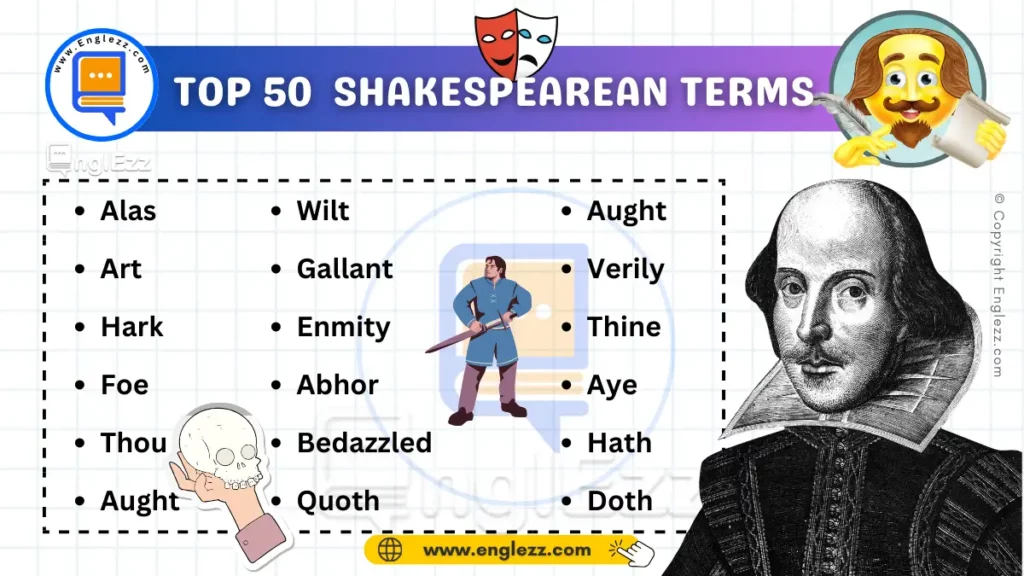
#17. Thither (ˈðɪðər) 🏃♂️
Definition: To that place.
Examples:
- “Come thither, and let me see thy face,” said the old man.
- “We must go thither at once,” urged the captain.
#18. Zounds (zaʊndz) 😮
Definition: An exclamation of surprise or indignation, a contraction of “God’s wounds.”
Examples:
- “Zounds! This is an unexpected turn,” exclaimed the nobleman.
- “Zounds! You frightened me,” cried the maid.
#19. Lest (lɛst) ⚠️
Definition: To avoid the risk of; unless.
Examples:
- “I must leave now, lest I be late,” said the scholar.
- “Guard this door, lest anyone enter,” ordered the knight.
#20. Woe (woʊ) 😢
Definition: Great sorrow or distress.
Examples:
- “Woe is me!” cried Ophelia, overwhelmed with grief.
- “Her face was full of woe,” the narrator described, painting a picture of sorrow.
#21. Anon (əˈnɒn) 🕰️
Definition: Soon or shortly.
Examples:
- “I will be with you anon,” said the messenger, reassuringly.
- “The play will begin anon,” announced the stage manager.
#22. Beseech (bɪˈsiːtʃ) 🙏
Definition: To ask urgently and fervently.
Examples:
- “I beseech thee, grant me this favor,” pleaded the knight.
- “We beseech you to stay,” the townspeople begged.
#23. Perchance (pərˈtʃæns) 💭
Definition: Perhaps; maybe.
Examples:
- “Perchance he is not the villain we believe him to be,” mused the detective.
- “Perchance you could spare a moment,” the courtier suggested.
#24. Sire (saɪər) 🕴️
Definition: A respectful term for a king or father.
Examples:
- “Your commands, my sire, are my orders,” the knight pledged.
- “Sire, I bring news from the battlefield,” the messenger announced.
#25. Ere (ɛr) 🌄
Definition: Before.
Examples:
- “Ere the sun rises, we must depart,” the leader instructed.
- “Finish this task ere nightfall,” the master demanded.
#26. Afoot (əˈfʊt) 🚶
Definition: In progress or happening.
Examples:
- “There is a plot afoot,” warned the spy.
- “Something strange is afoot in the castle,” whispered the servant.
#27. Tarry (ˈtæri) ⏳
Definition: To delay or be tardy.
Examples:
- “Tarry no longer, we must leave,” urged the commander.
- “Do not tarry, the king awaits,” the advisor cautioned.
#28. Troth (trɔθ) 💍
Definition: Loyalty or faithfulness.
Examples:
- “By my troth, I will never betray thee,” vowed the knight.
- “We pledged our troth to each other,” the lovers declared.
Definition: A dishonest or unscrupulous man.
Examples:
- “You are a knave and a coward,” accused the noble.
- “That knave stole my purse!” shouted the merchant.
#30. Marry (ˈmæri) 💑
Definition: Indeed or truly (a mild oath).
Examples:
- “Marry, I think not,” she replied, doubting the story.
- “Marry, it is a fine day,” the fisherman observed.
#31. Yonder (ˈjɒndər) 🌅
Definition: Over there; at some distance.
Examples:
- “See yonder castle? That is our destination,” pointed the guide.
- “Yonder lies the path to freedom,” declared the rebel.
#32. Avaunt (əˈvɔːnt) 🚫
Definition: Begone; go away.
Examples:
- “Avaunt, foul spirit!” the priest commanded.
- “Avaunt, I want nothing to do with you,” said the offended man.
#33. Plague (pleɪg) 🦠
Definition: A curse or calamity.
Examples:
- “A plague on both your houses!” Mercutio cursed in Romeo and Juliet.
- “This war is a plague upon our land,” lamented the king.
#34. Wilt (wɪlt) 🌿
Definition: Will; the second person singular form of “will.”
Examples:
- “Wilt thou be gone?” Juliet asked Romeo.
- “Wilt thou be my friend?” the child inquired.
#35. Gallant (ˈɡælənt) 🎖️
Definition: Brave or heroic.
Examples:
- “He is a gallant knight,” praised the lady.
- “The gallant soldiers fought valiantly,” recounted the bard.
#36. Enmity (ˈenmɪti) ⚔️
Definition: Hostility or hatred.
Examples:
- “There is enmity between our families,” Juliet explained.
- “Their enmity knows no bounds,” said the general.
#37. Abhor (əbˈhɔːr) 🤮
Definition: To detest or loathe.
Examples:
- “I abhor injustice,” the hero proclaimed.
- “She abhors the sight of blood,” noted the nurse.
#38. Bedazzled (bɪˈdæzəld) ✨
Definition: To be dazzled or enchanted.
Examples:
- “She was bedazzled by his charm,” the narrator described.
- “The crowd was bedazzled by the fireworks,” observed the scribe.
#39. Quoth (kwoʊθ) 🗣️
Definition: Said or spoke.
Examples:
- “Nevermore,” quoth the raven,” is a famous line from Poe but could be found in a Shakespearean context.
- Quoth he, ‘I shall return anon,'” the servant reported.
#40. Jest (dʒɛst) 🤡
Definition: A joke or witty remark.
Examples:
- “It was but a jest,” the fool insisted, trying to appease the angry king.
- “They jest at scars that never felt a wound,” Romeo noted.
#41. Fray (freɪ) ⚔️
Definition: A fight or scuffle.
Examples:
- “They entered the fray with courage,” the historian wrote.
- “He was wounded in the fray,” the soldier recounted.
#42. Beguile (bɪˈɡaɪl) 🎩
Definition: To charm or enchant in a deceptive way.
Examples:
- “She was beguiled by his words,” the narrator noted.
- “Do not let him beguile you,” warned the sage.
#43. Fain (feɪn) 😊
Definition: Gladly or willingly.
Examples:
- “I would fain go with thee,” said the lover.
- “He would fain accept the offer,” the diplomat reported.
#44. Quaff (kwɒf) 🍷
Definition: To drink deeply.
Examples:
- “They quaffed the ale merrily,” the innkeeper remembered.
- Let us quaff to our health,” the knight proposed.
#45. Ho (hoʊ) 🎶
Definition: An exclamation used to call attention or express surprise.
Examples:
- “Ho, guards!” called the king.
- “Ho, who goes there?” the watchman challenged.
#46. Vexed (vɛkst) 😤
Definition: Annoyed or frustrated.
Examples:
- “I am vexed by these delays,” the commander complained.
- “Her vexed expression spoke volumes,” noted the scribe.
#47. Surfeit (ˈsɜːrfɪt) 🤢
Definition: An excessive amount of something.
Examples:
- “He died of a surfeit of wine,” the coroner declared.
- “The surfeit of riches overwhelmed him,” said the narrator.
#48. Besmirch (bɪˈsmɜːrtʃ) 💔
Definition: To damage the reputation of someone or something.
Examples:
- “You have besmirched my honor,” the knight accused.
- “They sought to besmirch his good name,” the lawyer claimed.
#49. Banish (ˈbænɪʃ) 🚪
Definition: To expel from a place or situation.
Examples:
- “He was banished from the kingdom,” the herald announced.
- “I must banish these thoughts,” she resolved.
#50. Gory (ˈɡɔːri) 🩸
Definition: Involving or showing violence and bloodshed.
Examples:
- “The battle was gory,” described the historian.
- “He has a taste for gory tales,” remarked the librarian.
Table of Common Shakespearean English Terms
Shakespeare’s use of language is not merely a reflection of his time; it is a deliberate craft that conveys emotion, builds character, and sets the scene. As we’ve seen, his choice of words can evoke powerful imagery and stir profound emotions.
| Alas | Wilt | Aught |
| Art | Gallant | Verily |
| Hark | Enmity | Thine |
| Foe | Abhor | Aye |
| Thou | Bedazzled | Hath |
| Aught | Quoth | Doth |
| Verily | Jest | Methinks |
| Thine | Fray | Forsooth |
| Aye | Beguile | Whence |
| Hath | Fain | Hence |
Conclusion
Understanding Shakespeare’s language can be a rewarding journey into the richness of English literature. These 50 terms offer a glimpse into the unique vocabulary that defines his works. By learning these words, readers can unlock the beauty and depth of Shakespeare’s plays and sonnets, gaining a new appreciation for his mastery of language. This guide serves as a helpful tool for anyone looking to delve deeper into Shakespearean English, providing clarity and context that make his works more accessible and enjoyable.
From expressions of love and sorrow to declarations of conflict and peace, these terms have stood the test of time, remaining relevant and poignant centuries after they were first penned.
So, next time you pick up a Shakespearean play, keep this guide handy. You might find yourself speaking in the Bard’s tongue! 📜❤️

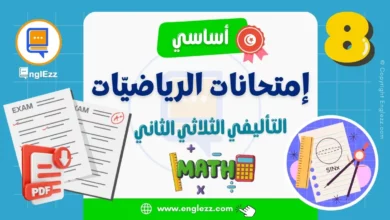


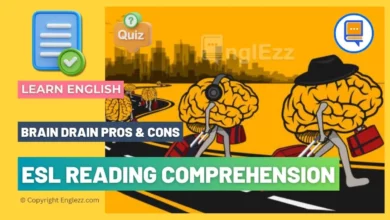
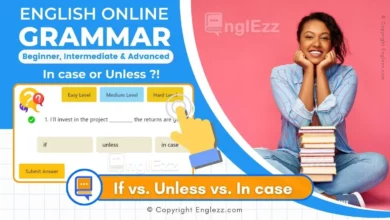

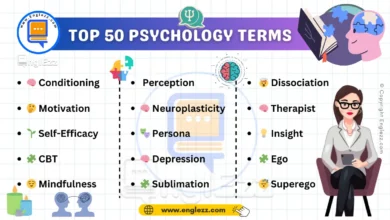

📚✨Unlock the magic of Shakespeare’s language and make your reading experience richer! 🎭 Dive into our guide on the most common Shakespearean terms, complete with definitions and examples to make these timeless works easier to understand. Don’t miss out on this linguistic journey—follow and like @EnglEzz for more! Explore now at:
.
https://www.englezz.com/common-shakespearean-english-terms/
.
#englezz #vocabulary #linguistics #Shakespeare #EnglishLiterature #LearnEnglish #LanguageLearning #WordsOfWisdom #LiteraryGenius